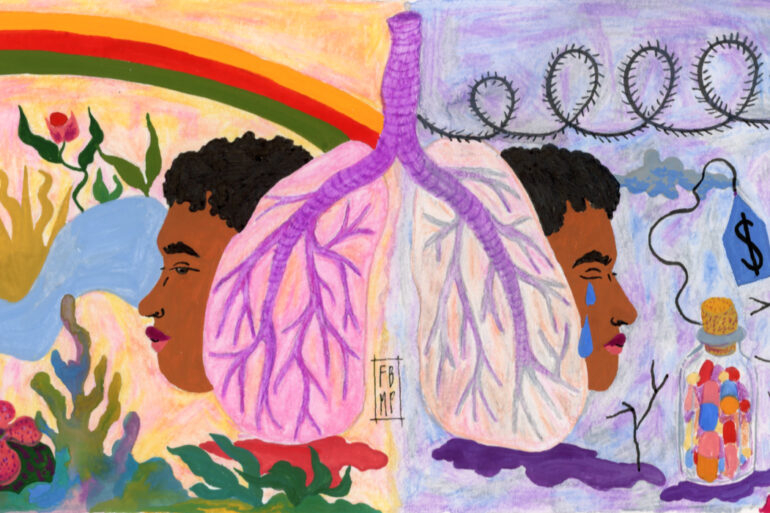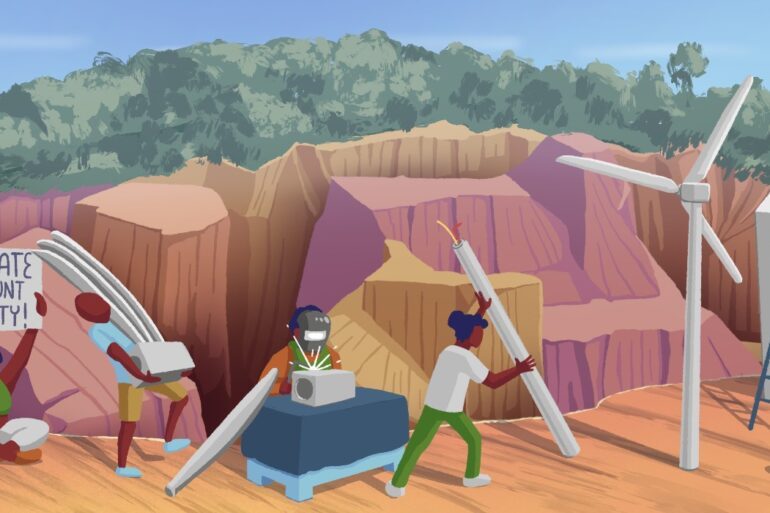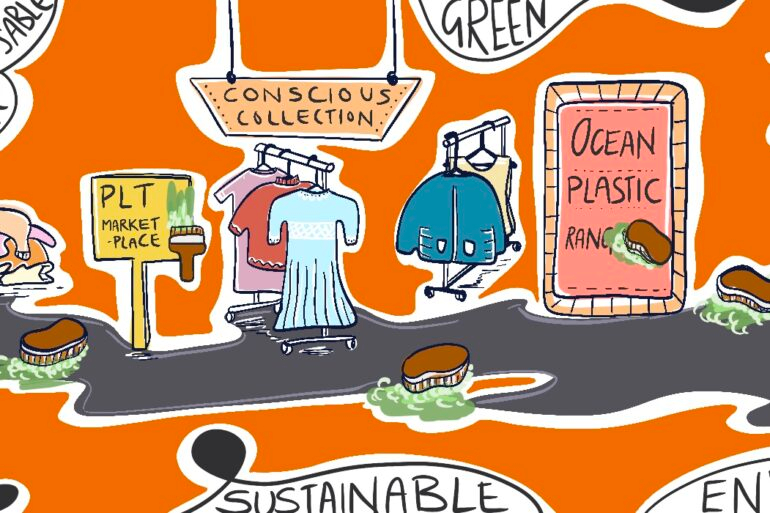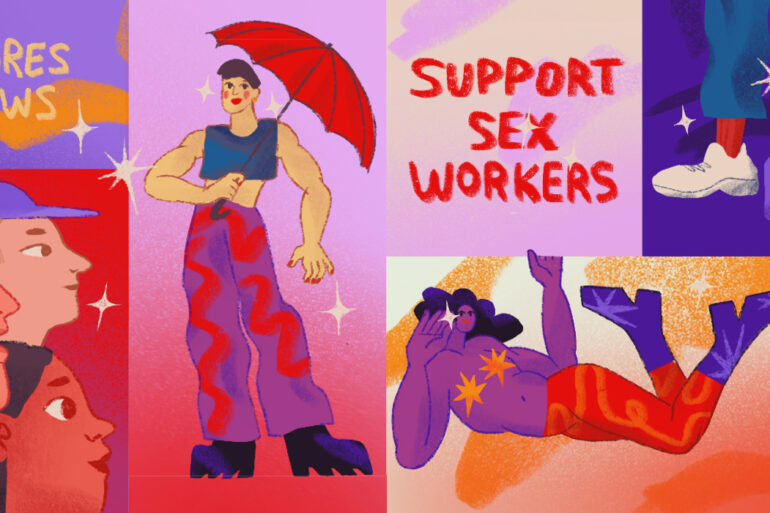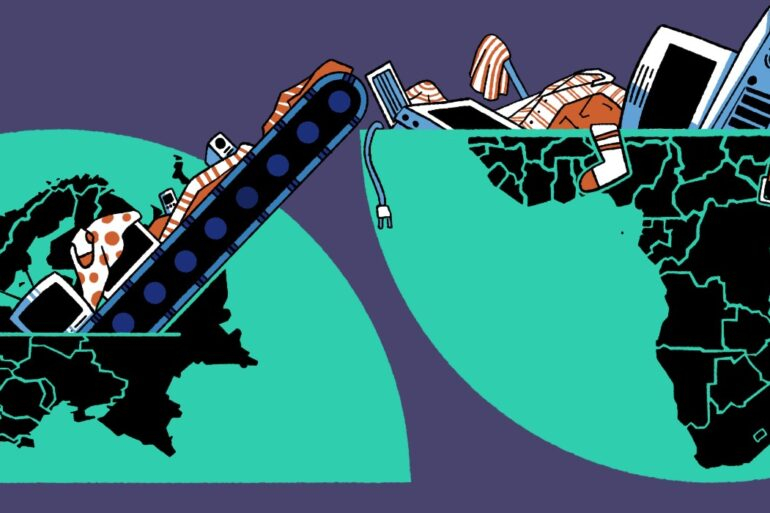What is the trade union movement?
At its core, the trade union movement represents workers coming together to defend their interests and improve their working conditions.
Unions are formed by workers across various industries, united by a shared goal – to challenge unfair conditions, fight for fair wages, ensure worker safety, and secure decent working hours. Trade unions provide a collective voice to workers, amplifying their demands, building solidarity and negotiating with employers.
Trade unions operate based on principles of solidarity, democracy, and collective bargaining. They recognise that the power dynamics between workers and employers often favour those at the top, and by joining forces, workers can challenge this imbalance and secure better working conditions for everyone.
Unions also provide support and advice to their members, ensuring that workers understand their rights and have the tools to navigate the complexities of employment.
Where did the trade union movement begin?
The roots of the trade union movement can be traced back to the Industrial Revolution in the late 18th century. During this period, workers faced hazardous conditions, long working hours, and unfair pay. The formation of unions was a response to these injustices. The pioneers of the movement, such as the Tolpuddle Martyrs, faced persecution and imprisonment for daring to stand up against exploitation — their sacrifices laid the groundwork for the rights and protections we enjoy today.
As industrialisation progressed, trade unions grew in strength and numbers. The establishment of the Trades Union Congress (TUC) in 1868 marked a significant milestone, providing a platform for unions to coordinate their efforts and advocate for workers’ rights on a national scale. Over the years, the trade union movement has evolved, adapting to economic changes, technological advancements, and shifts in the nature of work.
What have trade unions done for me?
The contributions of trade unions are far-reaching and have significantly improved the lives of workers in the UK and across the world. Without unions, we would not have the minimum wage, paid leave, limits on working hours, or protection against unfair dismissal. These hard-fought victories were not gifted to us by benevolent employers but were the result of tireless union advocacy, campaigning and collective action.
Trade unions have long been at the forefront of campaigns for social justice, challenging discriminatory practices and championing gender equality. They have fought for equal pay, maternity and paternity rights, and workplace accommodations for workers with disabilities.
By securing fair wages and ensuring decent working conditions, trade unions have always played a vital role in reducing income inequality and promoting economic justice.
Moreover, unions act as watchdogs, holding employers accountable for health and safety standards in the workplace. Through their collective power, unions have successfully pressed for regulations and policies that protect workers from hazardous environments, ultimately saving lives and preventing workplace injuries.
Why are trade unions needed today?
Despite the progress made, the fight for workers’ rights is far from over. In recent years, we have seen threats on many protections for workers, attacks on collective bargaining, and the rise of precarious employment such as zero-hour contracts. Unions play a crucial role in challenging these regressive trends and continue to stand as a key force against exploitative practices, providing a safety net for workers facing job insecurity, wage theft, and unfair treatment.
The Trade Union movement will also be essential in leading the climate justice movement for a just transition to a greener and fairer economy. They recognise the need for policies that prioritise workers’ interests, protect jobs, and ensure fair distribution of benefits. They push for retraining programs, job security guarantees, and equitable access to new green industries. By centreing workers’ voices, unions will shape a just transition that addresses the climate crisis while valuing, protecting, and empowering workers in the pursuit of environmental sustainability.
The attack on workers’ rights
In the past year, the UK has seen a surge in strike action as public sector workers respond to years of declining real-term pay and cuts to public services. Growing poverty and inequality, driven by skyrocketing inflation and energy bills, have forced workers to take a stand and demand fairer pay and better working conditions. Teachers, transport workers, nurses, postal workers, and ambulance drivers are some of many who have taken strike action, including the largest mass strike in over a decade, with nearly 500,000 workers uniting and withdrawing their labour on 1st February, 2023.
However, the UK government’s proposed anti-strike law seeks to put an end to these essential actions. The law would grant greater power to bosses across public services, enabling them to quash strikes through injunctions, sue for financial damages against unions, and even force the dismissal of employees on strike. The government argues that the law is intended to maintain “minimum service levels” on strike days, but existing mechanisms already ensure such levels and place significant restrictions on public sector workers’ right to strike. The proposed measures would grant an excessive amount of authority to UK government ministers, potentially rendering strikes so heavily restricted that they become ineffective.
Throughout history, strike action has been pivotal in securing fair pay and working conditions, from the Grunwick Film Processing Plant strike that mobilised a movement to defend migrant workers, to the courageous actions of Dagenham sewing machine plant workers, which led to the enactment of the Equal Pay Act.
The attack on the right to strike is a regressive step that undermines the power of workers to advocate for their rights and improve their working conditions. Defending the right to strike is not just a battle for workers in the UK; it is a global struggle for social justice. International solidarity and support from unions and activists worldwide are needed to counter these attacks and by standing up against these restrictions and protecting the right to strike, we uphold the values of fairness, equality, and workers’ empowerment.
Why is this a global issue?
The trade union movement is a global issue that extends its relevance to all corners of the world, wherever workers endure exploitative labour conditions due to the profit-seeking practices of governments and multinational corporations. Without the collective power of trade unions, workers often don’t have the means to stand up to these injustices and fight for their rights.
In South Asia’s garment industry, trade unions have successfully secured pay raises and safety contracts, preventing tragedies like the 2013 Rana Plaza factory collapse in Bangladesh. Similarly, in the agricultural sector of countries like Colombia, trade unions resist corporate exploitation and fight for fair treatment of farmworkers. And across Africa, trade unions play a pivotal role in advocating for the rights of mine workers, such as in South Africa, where unions have tirelessly campaigned against unsafe working conditions while advocating for improved wages and benefits for miners.
By forging alliances with workers’ movements globally, trade unions can amplify their impact and challenge the exploitative practices of multinational corporations. They advocate for fair trade policies that protect workers’ rights across supply chains, calling for transparency and accountability from governments and corporations.
By joining forces with workers worldwide, the UK Trade Union Movement plays an essential role in building a more equitable and just global economy.
Myth Busting Section: Strikes – The Power of Collective Action
Myth 1: Trade unions are only concerned with protecting their members’ interests.
Myth Buster: Trade unions have a broader mission beyond member protection. They strive for social justice, fair practices, and improved working conditions for all workers, whether they are union members or not. Trade unions often advocate for policies that benefit the entire workforce, such as fair wages, safe working environments, and reasonable working hours.
Myth 2: Strikes are always the first resort for trade unions.
Myth Buster: Strikes are typically a last resort for trade unions, used when other negotiation methods have failed to achieve a satisfactory outcome. Trade unions engage in collective bargaining, dialogue, and peaceful negotiations with employers to resolve disputes and improve working conditions. Strikes are a strategic tool used sparingly to demonstrate the collective power of workers and exert pressure on employers to address their demands.
Myth 3: Trade unions hinder economic growth.
Myth Buster: Trade unions play a vital role in creating a fair and sustainable economy. By advocating for fair wages and better working conditions, trade unions contribute to reducing income inequality and enhancing workers’ purchasing power. This, in turn, stimulates consumer demand, boosts productivity, and supports economic growth.
It is important to dispel these myths and recognise the invaluable role of trade unions in promoting workers’ rights, fostering social justice, and driving positive changes. Trade unions are an essential pillar of democratic societies, striving for fairness and equality in the workplace while advocating for the well-being of all workers.
What can you do?
Books to read:
- Make Bosses Pay: Why We Need Unions
- Workers Can Win: A Guide to Organising at Work
- Why You Should be a Trade Unionist
- United We Stand: A History of Britain’s Trade Unions
Current Campaigns:
- Defend the Right to Strike – Enough is Enough
- Protect the right to strike | TUC
- Defend the right to strike | Labour Unions
- Defend the Right to Strike – Peace & Justice
- Defend the right to strike!
Organisations to follow:
- Trades Union Congress
- Campaign for Trade Union Freedom
- Defend the right to strike – IER
- Strike Map
- War on Want
- Unite the union
- UNISON
- RMT
Online Webinars:
- This Crisis is Global – So Is Our Movement
- Organise! Our rights are under attack. (Webinar)
- Our trade unions: strikes, strategy and the rank and file
Watch:
- United Voices: outsourced key workers fighting for equal rights – video | Trade unions | The Guardian
- Strike: Inside the Unions – BBC iPlayer
Articles related to unions on shado:
- What is the Decriminalisation of Sex Work?
- The NHS as a site of structural violence
- The weaponisation of heroism in healthcare
- Reach for the picket: How journalists are unionising to fight for fair pay
- A week of unionising at Tesla, toxic chemical spills in Ohio and debates around the criminalisation of doctors who provide abortions



